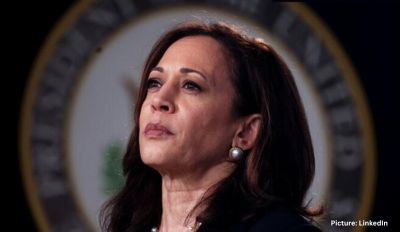Delivering the inaugural Rajiv Gandhi Lecture, Congress party leader Mani Shankar Aiyer offered a blistering critique of policies of Prime Minister Narendra Modi’s government and the overall direction India is currently moving toward.
In his speech, which lasted more than 70 minutes, the former cabinet minister spoke about the lasting impact of various policies and initiatives introduced by Gandhi, who served as prime minister of India from October 1984 to December 1989.
The Rajiv Gandhi Lecture was organized by the Washington, DC, chapter of the Indian Overseas Congress USA on September 17. The lecture series was instituted by the DC Chapter to commemorate the 75th birth anniversary of India’s sixth prime minister.
Aiyer, a former Indian Foreign Service officer and contemporary of Gandhi at Dehra Doon’s Doon School, offered an insider’s view — he served under the former prime minister in various roles — on a number of challenges Gandhi tackled during his tenure.
The former member of Rajya Sabha, the upper chamber of India’s parliament, compared Gandhi’s leadership with that of Modi.
He was especially critical of the current government’s Kashmir policy and its treatment of the minorities. India downgraded the status of Jammu and Kashmir from a state to a union territory, under the control of New Delhi, on August 5. Since then there has been a massive security clampdown and a communication blockade in the region.
“Can we have the territory of Kashmir, without the people of Kashmir?” Aiyer asked. “If the people of Kashmir are with us, as the government is claiming, then why don’t you leave them free to carry [National Security Advisor to the Prime Minister of India] Ajit Doval on their shoulders and say what a great man he is. Why don’t you let them out to put up posters saying ‘Modi zindabad! [Home Minister] Amit Shah Zindabad!’”
Contrasting Modi’s policies in Kashmir and Assam, where the government is implementing a controversial citizenship rule that critics say will rob millions of Muslims of Indian citizenship, Aiyer highlighted a number of accomplishments of Gandhi, both domestically and on foreign policy front, including his rapprochement with Pakistan and China, and signing of peace treaties with rebels in Punjab, Assam, Mizoram and Sri Lanka,
In a span of 18 months, Rajiv Gandhi was able to settle the perennial challenges to the country’s integrity whether in Punjab, Assam or Mizoram, Aiyar said.
He said Gandhi’s reconciliatory measures was instrumental in ending an insurgency in Punjab, He pointed out that the prime minister visited Punjab within four months after the anti-Sikh riots — which he called a pogrom — in Delhi following the assassination of Prime Minister Indira Gandhi, at the height of hostilities, and appointed Arjun Singh as governor to hold talks and enter into a peace accord.
This should serve as a lesson to negotiate peace with Kashmiris, 25 percent of whom were “with us” before revocation of Article 370 but 100 percent “against us” now, Aiyer said.
Referring to the Assam situation, he said Assam was tackled by Rajiv Gandhi similarly by negotiating a successful peace accord with the agitating Assam students and even sacrificing the incumbent Congress government in the state. In ensuing elections, “Congress was hopelessly defeated but India won,” he recalled.
In Mizoram, a 20-year-old insurgency was ended by handing over power to rebel leader Laldenga, who became chief minister replacing a Congress party government. Contrast this with how the insurgency in Nagaland is being handled now, Aiyer said. Five years ago, there was a Naga agreement but still no details are made public, he said.
On the foreign policy front, Gandhi became the first prime minister after Nehru to visit Pakistan, and it paved the way for better relations and opening bilateral talks, Aiyer said.
Referring to India’s effort to end a civil war in Sri Lanka and station an Indian Peace Keeping Force, he said: “Rajiv Gandhi has often been denigrated as a man with failure but how do you get acceptance of a neighbor without acceding to their request? When Maldives was beset with a coup, Rajiv sitting in Harare had sent Indian forces to restore democracy there.”
Even with Pakistan, Gandhi repeatedly met with then-Pakistan President Zia-ul-Huq, Aiyer said. After his return from a vacation in Andamans, Gandhi found that the border situation has escalated to the brink of a war as Operation Brasstracks and he managed to invite Huq to Delhi to resolve the tension peacefully. A prime minister should be able to defuse the tension and strive to arriving at a political settlement, Aiyar said.
Gandhi loved quoting Buddha’s words often: “The only victory is the one where there are no victors,” and he cited these words even at a UN address, the Congress leader said.
Another major accomplishment of Rajiv Gandhi was his visit to China in 1988, which defeated India in 1962. At the Great Hall of the People in Beijing, Chinese leader Deng Xia Ping held Gandhi’s hand throughout the parade sending a strong signal to the world. “We talk to China often, though we were defeated by them, but never hold talks with Pakistan, whom we had defeated,” said Aiyar who had served in Islamabad as a diplomat in the early 1980s.
“If you don’t trust Pakistan, you are putting yourself on the path of a nuclear bomb,” Aiyer said. “If you don’t trust Pakistanis the way I do, they are not so stupid to use a bomb… If you don’t talk, rifle is the answer. You will have the satisfaction of destroying Pakistan and they will have the satisfaction of destroying you. Nearly 1.5 billion people will be vanished. Is that the answer?”
Among Gandhi’s domestic accomplishments was the passage of an anti-defection law and keeping it under the Tenth Schedule of the Constitution, Aiyer said. It helped stem the “Aayaram, Gayaram” trend in Indian politics, the former parliamentarian said, terming it as a “disease of Indian democracy (that) was removed by Rajiv Gandhi within a week or so of his becoming the prime minister with an electoral majority, the largest majority that any Prime Minister in India ever received,” he said.
The introduction of reservation for women and socially backward segments of the Indian society helped achieve balance in people’s representation at local levels, Aiyer said. Thanks to Gandhi, who made democracy at the grassroots level a reality, there are 86,000 women who are running Panchayats in India now, he pointed out.
Another legacy of Gandhi, according to Aiyer, was the lowering of the voting age to 18 years, which made India’s youth part of the decision-making process.
Aiyer’s speech was tinged with anecdotes. He recalled his first meeting with Gandhi at Doon school, where the former prime minister was three years junior and again at Cambridge University. Aiyar said Gandhi canvassed for him when he contested student Cambridge Union election.
“Rajiv began his political career by canvassing for me, so I think it is appropriate that I ended up in PMO and supported him,” he noted in his address at the lecture, organized by the Indian Overseas Congress on September 17, 2019.
At the event, Aiyer also inaugurated the re-organized DC Chapter of Indian Overseas Congress USA.
IOC USA President Mohinder Singh Gilzian and Vice Chairman George Abraham spoke on the occasion. The organization’s Chairman Sam Pitroda addressed the gathering from Chicago via Skype.
Other speakers included the newly appointed president of the DC Chapter Johnson Myalil and chapter committee members Ashok Batra and Rohit Tripathi.
Video link: https://youtu.be/z2pmRJmRIUA


